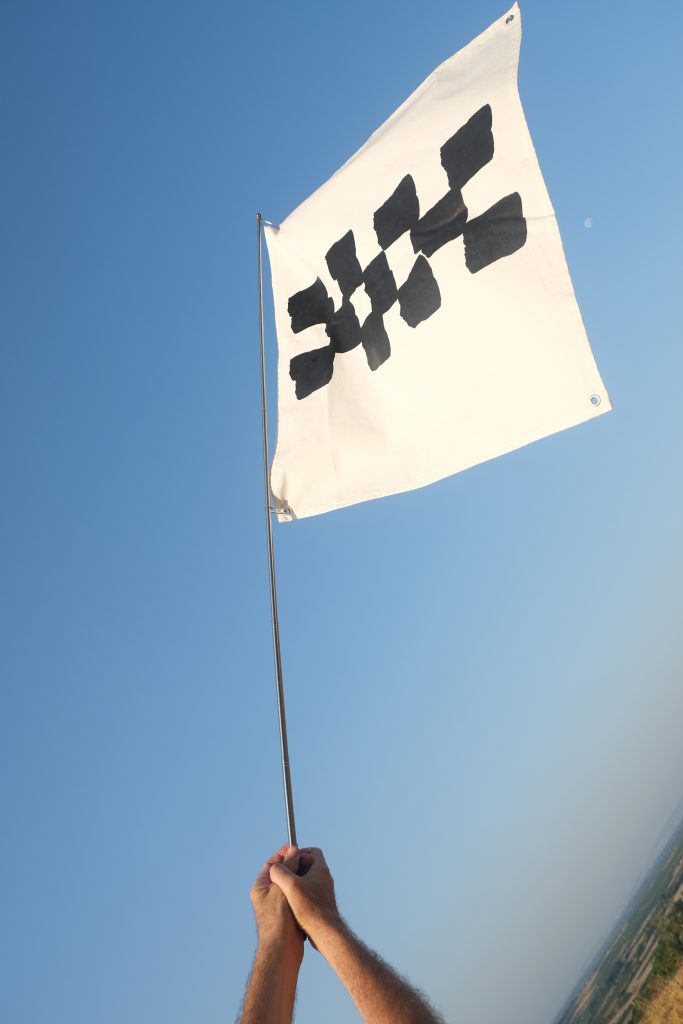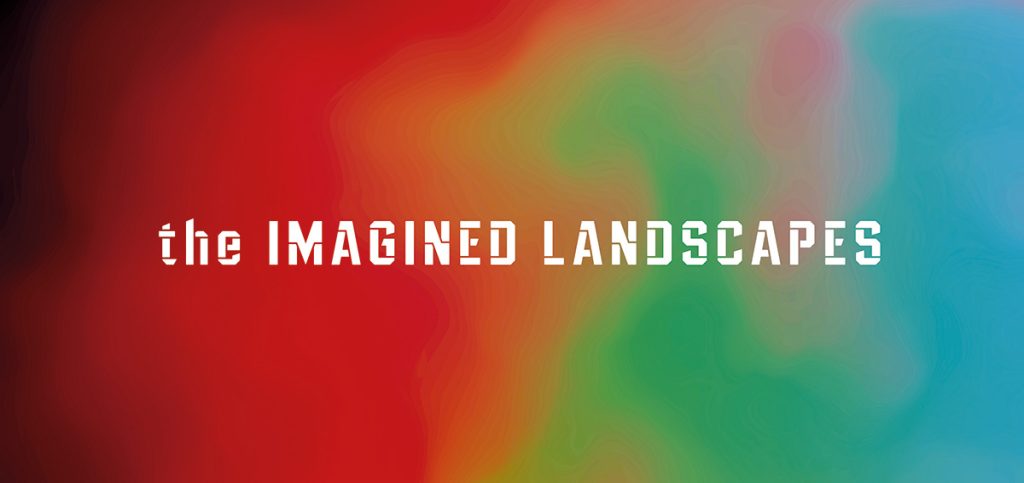Beloging the Space of Togetherness
Belonging < the Space > of Togetherness is an artistic project that responds to the climate crisis by activating collective imagination and emphasizing social responsibility. It explores how we inhabit and co-create public space, fostering dialogue, social engagement, and resistance to extractive systems. Through site-specific installations, a public action, and a short film program, the exhibition proposes new models of sustainable coexistence, alternative practices, and emerging economies.
The exhibition features a flag made from recycled fabrics by a migrant women’s cooperative as part of the From the Top of the Mountains We Can See Invisible Monuments project, along with billboard works by Orlando Vieira Francisco, Ana Paula Franco, Inés Ballesteros and Michela Dal Brollo. In addition, Living Equipment: Portable Spaces by Michela Dal Brollo and Inés Ballesteros is presented — a mobile relational device constructed from recycled materials, designed to activate encounters and reimagine the use of urban space. A program of short films by international artists expands these conversations through poetic and political perspectives.

Belonging < the Space > of Togetherness is part of the project From the Top of the Mountains We Can See Invisible Monuments, which is supported by the Portuguese Directorate-General for the Arts, the Portuguese Foundation for Science and Technology, the University of Porto, and the Calouste Gulbenkian Foundation.
As part of the “IN THE CUBATURE OF THE CABINET” series at FLUCC, the exhibition promotes sustainable materials, community-led actions, and eco-social engaged dialogue — imagining new ways of being together that resist isolation and embrace collective transformation.


Participating artists
Orlando Vieira Francisco, Inés Ballesteros, Michela Dal Brollo, Ana Paula Franco, Veronika Schubert, Mariela Schöffman, Chana de Moura, José Oliveira, Sara-Lisa Bals, and Julian Berger.
Collaborations
Cooperativa Bandim (Milene Pereira, Marília Teixeira, Maria José) and Asifeh.
More about the associated projects in the exhibition:
From the Top of the Mountain We Can See Invisible Monuments aims to create structures of visibility and communication as a response to “infrastructure spaces” that avoid taking responsibility for damaging the environment. This project, developed in collaboration with artists, includes visual pieces for the FLUCC billboards and a flag installation made from recycled fabrics.
The project critiques unsustainable economic and production processes, proposing a network for knowledge-sharing and advocacy for responsible environmental practices. The work fosters a critical dialogue about the invisible yet impactful infrastructures shaping our world through its installations, promoting awareness, and inspiring sustainable alternatives.
Living Equipment: Portable Spaces is a collaborative project by Michela Dal Brollo and Inés Ballesteros, centered on creating portable relational and conceptual devices. These tools, made entirely from recycled materials, are designed for site-specific research and foster encounters and exchanges in public spaces. The project applies nomadic principles to explore sustainability within mobility, collaborating with existing activities and infrastructures.
The work investigates urban liminal spaces—transitional zones with unique relational dynamics, geography, and temporal perceptions. By engaging with these spaces, the artists connect with their past stories and envision future possibilities. Through this approach, “Living Equipment” challenges conventional uses of space, promoting alternative narratives and sustainable
Selected short films:
“The Last Summer” by Inés Ballesteros, Michela Dal Brollo, and Alicja Nowicz (2023, 9’)
“In erster Linie / First and Foremost” by Veronika Schubert (2016, 5’30”)
“Erratic Lands” by Julian Berger (2025, 11’36”)
“More Mountains More Seas” by OVF (2023, 10’)
“Pavor Nocturnus” by Mariela Schöffmann (2023, 6’33)
“Celestial Twins” by Chana de Moura (2019, 8′)
“Der Abzug” by Sara-Lisa Bals (2021, 5’23”)
“Respigar Espinhos” by Inés Ballesteros and Michela Dal Brollo (2024, 12’)
“Eremocene / Eremozän” by Mariela Schöffmann (2021 5’22”)
“Pantelas”, by José Oliveira (2018, 35′)